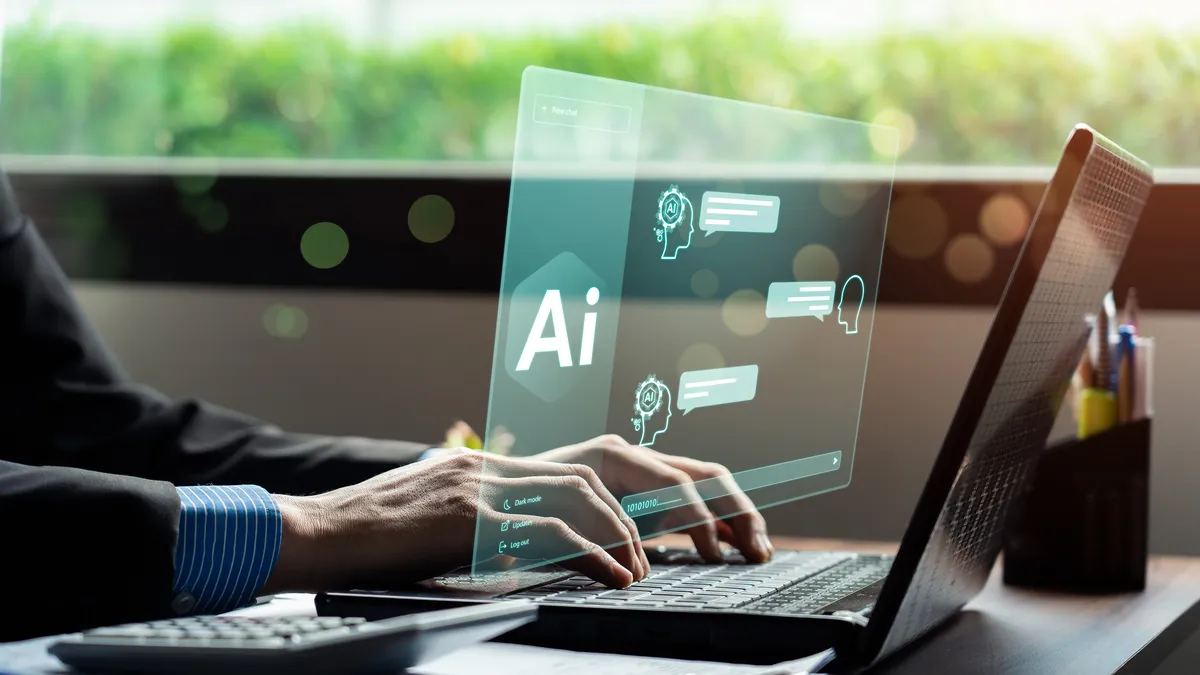Dive Brief:
- Even though worldwide adoption of generative artificial intelligence “has increased dramatically in the past year,” only 5.2% of companies worldwide credit the technology with providing more than 10% of earnings before interest and taxes, McKinsey said.
- Use of generative AI in at least one business function has surged to 65% from 33% just 10 months ago, with companies finding the most promising payoffs in marketing and sales and the development of products and services, McKinsey found in a survey of 1,363 companies worldwide.
- “Generative AI is no longer a novelty,” McKinsey Senior Partner Alex Singla said in a statement. “The leading companies are the ones that are focusing on reimagining entire workflows with gen AI and analytical AI rather than simply seeking to embed these tools into their current ways of working.”
Dive Insight:
Generative AI by 2032 may annually spur as much as $1 trillion in U.S. economic growth and a 3.5% gain in productivity, according to Cognizant.
The technology could also disrupt 90% of jobs by that time, with more than half (52%) “greatly impacted,” Cognizant said, referring to a model created with Oxford Economics that analyzed 1,000 jobs and 18,000 tasks.
Generative AI will influence occupational groups differently, Cognizant said.
In accounting, small firms will be able to better compete with larger ones by boosting efficiency, upgrading data analysis and reducing the drag from staffing shortages, according to the American Institute of Certified Public Accountants.
AI “is as groundbreaking as the internet or the smartphone, but with a much faster adoption rate and greater ease of use,” the AICPA said in a report co-written with CPA.com. The technology “makes it possible to create new and better business models and more precisely match value to cost.”
Generative AI is helping cut costs and pump up revenue, McKinsey said.
Companies most commonly use it to support marketing strategy, personalize marketing, identify and prioritize sales leads, create designs for services and products, review research, and speed simulation and testing, McKinsey said.
Survey respondents reported increasing revenue by more than 5% in supply chain and inventory management, according to McKinsey. They said they achieved the biggest cost cutting in human resources.
Generative AI “high performers” are more likely to use the technology in risk management, compliance, legal matters, strategy, corporate finance, and managment of inventory and supply chains, according to McKinsey.
Compared with their less accomplished peers, high performers are more than three times more likely to use the technology for processing accounting documents, assessing risk, promotions, pricing, and research and development, McKinsey said.
Companies recognize several risks from generative AI, including inaccuracy, bias, data privacy leaks and intellectual property infringement, McKinsey said.
The companies that McKinsey consider high performers “are more likely than others to say their organizations have experienced every negative consequence from GenAI we asked about, from cybersecurity and personal privacy to explainability and IP infringement,” the consulting firm said.
Seven out of 10 high performers said they faced challenges in establishing data governance, quickly integrating data into AI models and gathering sufficient training data, McKinsey said.
“Competitive advantage comes from building organizational and technological capabilities to broadly innovate, deploy and improve solutions at scale — in effect, rewiring the business for distributed digital and AI innovation,” McKinsey Associate Partner Bryce Hall said in a statement.












